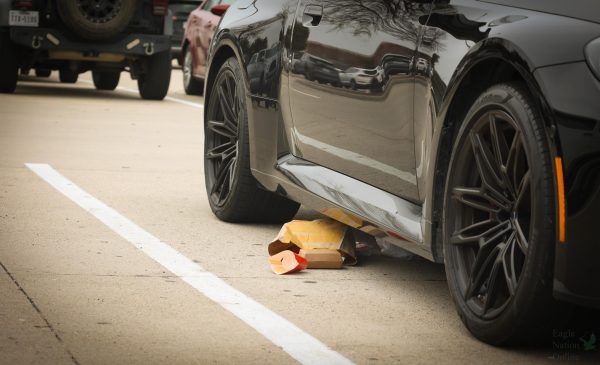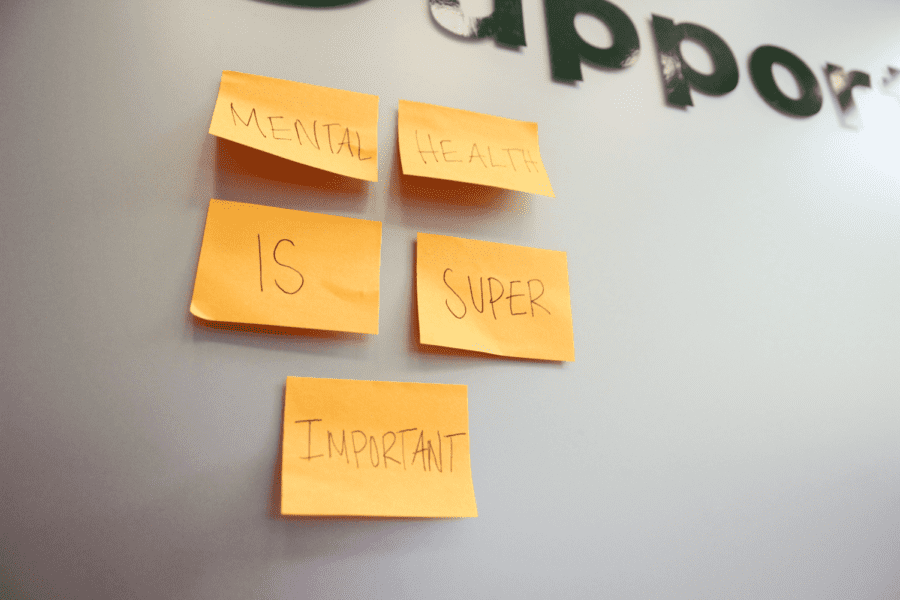Mental Health – Editorial issues call-to-action to students, parents: ‘Interact,’ ‘Accept’
According to the Centers for Disease Control and Prevention, every year, more deaths occur by suicide than by gun violence. Editorial writer Ryan Stanley calls on students and parents to accept each other. “Mental health has a stigma of hiding within us like a virus,” Stanley said. “We don’t want to share our plight with others because we are embarrassed.”
Eagle Nation’s Online most viewed story, “Hope Squad program to come to Prosper after teen suicide“ by Assistant Editor Haley Stack, covers the death of Braden Speed and the positive changes it inspired. The story cites Braden’s mom Cathy Speed who wished programs like the Hope Squad were in place sooner.
When students commit suicide, the main reaction is along the lines of ,“I wish we knew. I wish I could’ve helped.” They are wishes that lead to positive changes, but not in time to prevent the tragedy that inspired them. We need to make changes before tragedy strikes. Suicide is a crises that can be prevented. PHS does a better than average job at preventing suicide and raising awareness for mental health because the average is doing nothing. All school districts need a program like Hope Squad, and all of us need to erase the mindset that mental health should be hushed
By the numbers
Every year, over 38,000 Americans die from suicide, and there are an estimated 1,400,000 attempts. In comparison, last year, 14,623 Americans died from gun violence. We hear about a gun crisis, but we never hear about a suicide crisis. Suicide is the tenth leading cause of death in the US, and is especially high among white males. Within Texas, it is the second leading cause of death for ages 15-34. We have programs like “Shattered Dreams” where students are required to watch, and hopefully gain a valuable lesson so they don’t succumb to accidents, defined as unintentional injuries, which cumulatively are the leading cause of death among teens in Texas, but no major strides have been taken toward preventing suicide nationwide. “Don’t drink and drive,” is pounded into the minds of adolescents. What we are told at a young age does have a lasting impact. However, mental health rarely gets mentioned as a topic at almost any age.
Mental health has a stigma of hiding within us like a virus. We don’t want to share our plight with others because we are embarrassed. “They’ll be fine,” we say. “They’ll get over it.” What we fail to realize is the amount of pain our peers silently struggle with. Mental health issues have scarcely been recognized in human history.
Following the Vietnam War, psychiatrist Charles Marmar conducted a study on post-traumatic stress disorder in veterans who served. Marmar’s study suggests that 271,000 veterans struggle from symptoms. It wasn’t until 1980, five years after the war ended, that the American Psychiatric Association acknowledged PTSD. Mental health has and still is considered a weakness and embarrassment. The move by the APA was initially criticized because people didn’t believe, or didn’t want to believe that soldiers could struggle from mental health. Much like now, parents, teachers and friends fail to acknowledge mental health. It wasn’t until the 2000s that further strides and recognition of mental health was implemented. In 2004, the National Suicide Prevention Line was created, a move much too late for thousands who suffered in isolation.
A wall with positive messages currently hangs in the hallway at PHS. It comes from good intentions, but it highlights the issue. A student struggling from mental health issues, or just having a bad day, will take a sticky note from the wall, but what does it really do to help. They are still struggling. The only difference is they’re struggling while staring at a message of positivity. This time hoping, forcing themselves to feel a sense of happiness the note is telling them to feel.
What can we do?
Students – we can be more than just classmates. Spread positive messages and interact more in person. Check in on friends, and above all, care about each other. Ask your friends how they’re doing. A simple question about their lives can show someone cares.
Parents – accept your child and acknowledge the pressure they have within their lives. One major factor that has influenced teen depression is a heavy workload and pressure to achieve academic success in an increasingly competitive environment. Don’t push your child to extremes. Accept an occasional bad grade, and see how you can help alleviate some of the stress within their lives instead of adding onto it.
If you’re struggling, please reach out to someone. You are not alone. Your friends care. Your family cares. Prosper cares. To find out more about Hope Squad, visit them at https://hopesquad.com/.
National Suicide Prevention Line: 1-800-273-8255 (Lines are open 24 hours every day.)
Your donation will support the student journalists of Prosper High School. Your contribution will allow us to purchase equipment and cover our annual website hosting costs.







![Freshman Polly Greaves created this updated version of the original graphic through Canva. Their next episode reviews a science fiction novel, 'Ender's Game.' "I feel like [Orson Scott Card] did a really good job incorporating feelings into his words and the plot," Greaves said, "which really made it a work of art because I believe that good books are books that can make you feel something."](https://eaglenationonline.com/wp-content/uploads/2025/02/EndersGame_Cover3-600x420.png)








Emma Gnidziejko • Apr 15, 2019 at 9:02 am
This article was super informative and very well written! Suicide is a very big issue, and is not talked about enough. Great job!